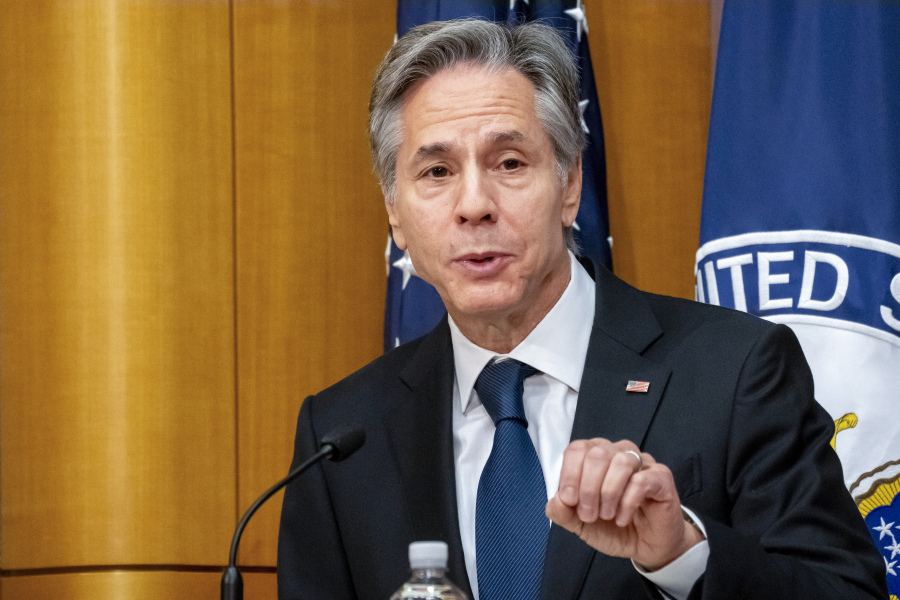U.S. Secretary of State Antony Blinken said Houthi militants in Yemen must know they’ll face “consequences” for continued attacks on ships in the Red Sea, even as a top regional leader warned against military action by a U.S.-led coalition.
“We’ve had 40 countries come together to make clear that what the Houthis are doing has to stop,” Blinken told reporters Monday in Saudi Arabia, after meeting Saudi Crown Prince Mohammed Bin Salman and before heading to Tel Aviv.
“We have other countries that have made clear that if it continues, there have to be consequences.”
The top U.S. diplomat, who’s on his fourth trip through the Middle East since Hamas militants attacked Israel on Oct. 7, has visited Turkey, Greece, Qatar and the United Arab Emirates in quick succession to discuss efforts to avoid a regional conflict, protect Palestinian civilians and garner Arab support for a post-conflict government in Gaza.
But he’s also traveling as tensions are rising in the Red Sea, the gateway to the Suez Canal that’s crucial to global trade, where Houthis have attacked commercial ships in response to Israel’s war in Gaza.
Over the weekend, the number of transits through the canal fell to the lowest since the waterway was blocked by the Ever Given container ship in 2021, according to Inchcape Shipping Services, a sign of the wider impact of the disruption on world trade.
“These attacks are having a real effect on the prices that people have to pay for food, for medicine, for energy. Ships have to get diverted to other places. Insurance rates go up,” Blinken said. “And the basic principle of freedom of navigation is what’s at stake. So the international community has a real stake in upholding that principle.”
The U.S.-led coalition, which has launched patrols and intercepted missiles in the Red Sea, has already received push back from one partner over its earlier warning to the Houthis, which was similar to Blinken’s.
Qatari Prime Minister Sheikh Mohammed Bin Abdulrahman Al Thani – speaking alongside Blinken on Sunday evening – rejected a military response, warning it would only raise regional tensions and fuel an endless cycle of violence.
“We never see a military action as a resolution,” Al Thani said.
The Qatari leader’s comments, including calls for an immediate ceasefire in the Israel-Hamas conflict, underscore the difficult balancing act for Blinken.
The Biden administration is trying to avoid a broader regional war that could spin out of control and further destabilize the region, but believes U.S. forces – including two aircraft carrier strike groups moved to the region – need to respond to Iran’s proxy groups, which have attacked not just commercial ships but U.S. forces in Iraq and Syria.
Tim Lenderking, the Biden administration’s special envoy for Yemen, joined Blinken’s meetings in the UAE with the Emirati President Sheikh Mohammed bin Zayed Al Nahyan on Monday. Blinken “emphasized the importance of preventing further spread of the conflict,” according to a statement.
The top U.S. diplomat’s visit to the region also comes as tensions rise between Israel and Iran-backed Hezbollah militants in neighboring Lebanon, with Hamas blaming Israel for the assassination of a senior official in Beirut last week, and Hezbollah responding with a volley of rockets into northern Israel.
The Israel Defense Forces struck back, launching cross-border attacks into Lebanon that killed a Hezbollah commander.
“It’s clearly not in the interest of anyone — Israel, Lebanon, Hezbollah for that matter — to see this escalate, and to see an actual conflict,” Blinken said.



